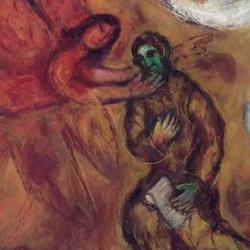INTRODUCTION
Beginning in chapter 13, Isaiah proclaims a series of “burdens” against the nations. He begins with Babylon (13:1; 14:4), and in chapter 21 he returns to Babylon, now called the “wilderness of the sea” (21:1). In these oracles, Yahweh shows that He is Lord of all nations.
THE TEXT
“The burden against the Wilderness of the Sea. As whirlwinds in the South pass through, so it comes from the desert, from a terrible land. A distressing vision is declared to me; the treacherous dealer deals treacherously, and the plunderer plunders. Go up, O Elam! Besiege, O Media! All its sighing I have made to cease . . . .” (Isaiah 21:1-17).
WILDERNESS OF THE SEA
Verse 9 is the key to understanding the fragmentary oracle against the “wilderness of the sea”: This is a prophecy about the fall of Babylon. As in chapters 13-14, Babylon is introduced only to collapse. Combining “wilderness” and “sea” as a description of the Babylonian empire seems contradictory to us, but is less so in Scripture. Sea and wilderness are both threatening and dangerous environments. As a Gentile power, Babylon is “sea,” and as the place of Israel’s future 70-year “wandering” Babylon is like the post-exodus wandering in the wilderness.
FALLEN, FALLEN IS BABYLON
Isaiah sees a vision of Elamites (ancestors of Persians) and Medes coming like Yahweh’s whirlwind against Babylon (vv. 1-2). The invasion takes the Babylonians by surprise: They are lounging at their tables when the enemy sweeps in (v. 5; cf. Daniel 5). News of Babylon’s fall is carried to a city, perhaps Jerusalem, where it is shouted out to a watchman (vv. 8-9). Not only Babylon herself, but her gods are shattered. What surprises us in this oracle is Isaiah’s reaction. He is the speaker in verse 2 (“a harsh vision has been shown to me”), and he continues to be the speaker throughout the passage (vv. 3, 4, 8, 10). When Babylon falls, Isaiah doesn’t rejoice but is in anguish, like a woman in labor (v. 3). The birth image indicates that the traumatic fall of Babylon is the re-birth of Israel, but Isaiah also grieves over Babylon. Babylon was a refuge for Judah in the early years of exile, and her fall from Yahweh’s favor is tragic. But Babylon’s fall is also good news for the “threshed” people of Judah (v. 10). The announcement of Babylon’s fall is quoted in Revelation (14:8; 18:2), applied to Jerusalem, also a once-faithful city that turned harlot.
EDOM/DUMAH
The brief oracle against Edom begins with a pun. Instead of using the normal name “Edom,” verse 11 pronounces a burden concerning “Dumah,” which means “silence” or “death.” The descendants of Esau will be silenced in the grave. As in the previous oracle, the oracle against Edom portrays watchmen, but here they are night watchmen announcing the hours of the night. Dawn is coming for the Edomites, but even dawn will be dark, and Edom will have no light to guide them (v. 12).
ARABIA
Arabs are also caught up in the political chaos that is coming from Assyria and Babylon. Fugitives flee from a terrible army (v. 15), and Isaiah calls on the cities of Dedan and Tema to bring food and water (cf. Deuteronomy 23:1-4). The Lord plans to purge the splendor of the Arabian cities from them. He will leave only a handful of mighty men behind (v. 17).










